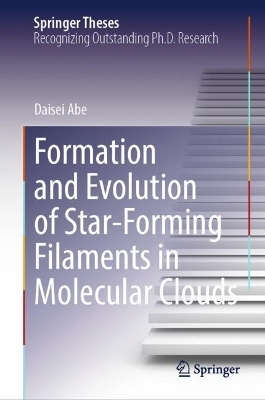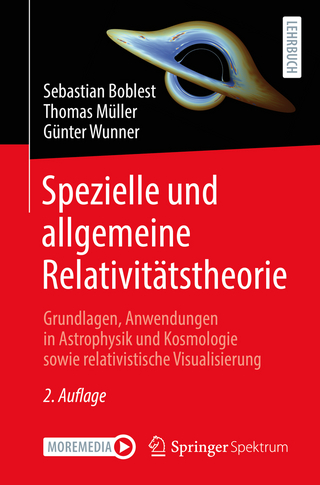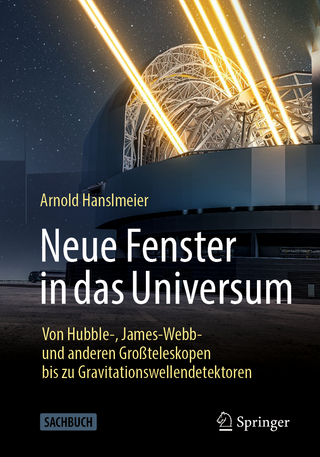
Formation and Evolution of Star-Forming Filaments in Molecular Clouds
Springer Nature (Verlag)
978-981-97-6413-6 (ISBN)
This book clears up some confusion in the field of star formation and proposes a solution to a problem that remains unsolved for more than a decade. Observations of molecular clouds show that dense filaments are the sites of present-day star formation, and it is thus necessary to understand the filament formation process because the filament is an initial condition in a star formation process. Theoretical studies suggest that shock waves in molecular clouds trigger filament formation. Several different mechanisms have been proposed, and the formation mechanism of the observed star-forming filaments is expected to be clarified. In this book, the author performs a series of isothermal magnetohydrodynamics (MHD) simulations of filament formation and identifies the formation mechanisms. It is found that the dominant filament formation mode changes with the velocity of the shock waves that trigger the filament formation. The filament width plays an important role in determining the fragmentation scale by self-gravity, and observations show that the width 0.1 pc is universal. On the other hand, in theory the width of the supercritical filaments was considered to be narrowed by self-gravity. Recent studies suggest that massive filaments are bound by the slow shocks that are caused by accretion flows onto the filaments. Since the wavefront of such a slow shock is known to be unstable as a slow shock instability (SSI), the accretion ram pressure is expected to be converted into thermal/turbulent pressure across the shock front, which potentially maintains the width. In the scale of dense filaments, ambipolar diffusion (AD) suppresses the SSI at small scales. The influence of AD on SSI is investigated using two-dimensional MHD simulations, and the nonlinear evolution of the SSI with AD is found to drive turbulences. The book demonstrate the effect of SSI including AD onto the filament evolution.
Daisei Abe received his bachelor of science from Aoyamagakuin University in 2018, and his master of science and doctor of science from Nagoya University in 2020 and 2023, respectively. He is awarded a research fellowship for young scientists (DC2) by the Japan Society for Promotion of Science (JSPS) in 2022 and will be supported until 2024, and received the Prize for Best Young Speaker from the Japan Society of Fluid Mechanics in 2021, the Nagoya University Dean Prize in 2020 and the student presentation award in master thesis defense in 2020.
Introduction.- Classification of Filament Formation Mechanisms.- The Effect of Shock Wave Duration on Star Formation and the Initial Condition of Massive Cluster Formation.- Filament Evolution Process.- Conclusion.
| Erscheinungsdatum | 20.09.2024 |
|---|---|
| Reihe/Serie | Springer Theses |
| Zusatzinfo | 43 Illustrations, color; 4 Illustrations, black and white; XII, 99 p. 47 illus., 43 illus. in color. |
| Sprache | englisch |
| Maße | 155 x 235 mm |
| Themenwelt | Naturwissenschaften ► Physik / Astronomie ► Astronomie / Astrophysik |
| Naturwissenschaften ► Physik / Astronomie ► Plasmaphysik | |
| Schlagworte | Ambipolar Diffusion • Dynamics in Molecular Clouds • Filament Formation • Magnetohydrodynamic Shock Wave • Magnetohydrodynamic Simulation • Slow Shock Instability |
| ISBN-10 | 981-97-6413-0 / 9819764130 |
| ISBN-13 | 978-981-97-6413-6 / 9789819764136 |
| Zustand | Neuware |
| Haben Sie eine Frage zum Produkt? |
aus dem Bereich


